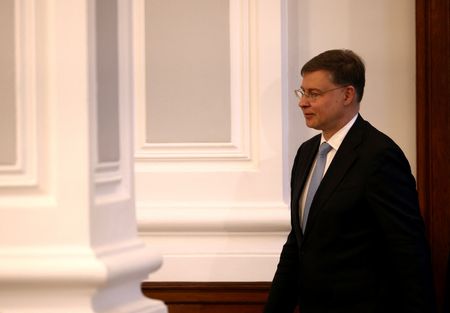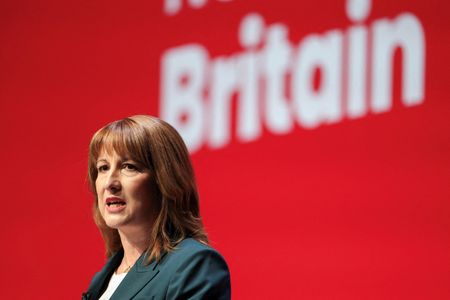WASHINGTON (Reuters) -France appears to be on track with its 2025 budget gap reduction, and while the suspension of its pension reform will be costly, it should be offset by other measures to keep consolidation as agreed with the European Union, the EU’s top economic official said on Thursday.
Speaking to Reuters on the sidelines of the International Monetary Fund meetings in Washington, European Economic Commissioner Valdis Dombrovskis said the 2026 French budget, presented by Prime Minister Sebastien Lecornu earlier this week, must be in line with France’s medium-term plan agreed with Brussels.
“We note the decision to suspend the pension reform and it’s also acknowledged by the French government itself that it comes with a sizable fiscal cost,” Dombrovskis said.
“But at the same time, there were also indications from the government that they will be then providing measures to offset this negative fiscal impact,” he said.
“Our message is that it’s important that next year’s budget, which France is supplying, is in line with its medium-term fiscal structural plan, which is important to ensure long-term debt sustainability and financial stability,” he said.
“As regards this year, the indications so far are actually more positive. In spring, we are expecting some deviations from the fiscal targets, but it may well be that at the end of the day France will be on track with its fiscal target for this year,” Dombrovskis said.
France expects a budget deficit of 5.4% of GDP in 2025, down from 5.8% in 2024.
(Reporting by Jan Strupczewski; Editing by Paul Simao)











